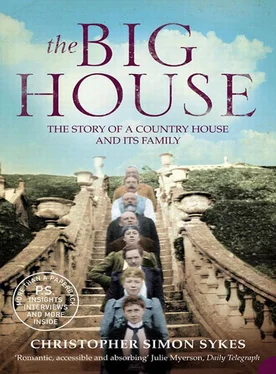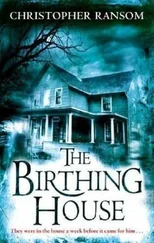1 ...6 7 8 10 11 12 ...28 It turned out that Joseph’s mother did indeed have very strong objections, which Richard laid out in his reply. ‘She says the frequent Headaches your daughter had at Hull must frequently disable her from looking over her family, that her son’s Industry must be spent at the discretion of Servants, and that she has instances in her family of great Miscarriages from the Mistress being Sickly … indeed there seems so great an aversion that it will be impossible to get over it. I need not tell you how bad a prospect there is where the Mother is so averse to the Lady.’ 71 Richard did not give up, however, for he could not bear to see Joseph so unhappy, and in the end he persuaded both sets of parents to allow the marriage, which took place in June, 1754 and turned out to be a very happy one. In spite of Joseph’s mother’s fears that Dolly’s health would lead to her having endless miscarriages, she gave birth to seven children, all of whom survived into adulthood, and she lived to the ripe old age of sixty-nine.
Richard’s niece was the only daughter of his younger brother, Parson Sykes, the Revd Mark Sykes, Rector of Roos, and although she was christened Maria, her Uncle always affectionately referred to her as Polly. His correspondence with her shows him to have taken an almost paternal interest in her upbringing. For example, in a letter to her dated 2 July, 1753, when she was fourteen, he gently chastised her for her last letter, which contained little more than ‘compliments love & duty’, expressing hope that ‘your next will be more entertaining … by giving me a description of your Journey as well as the Country Situation and prospect from your friend’s House and Garden’; he offered her advice on healthy eating – ‘The latter abounds with fruit. I make no doubt but you have been tempted to taste thereof. A little at proper times may be both good and wholesome as too much hurtful. I hope you are so prudent as to require no reminding you of that or anything else which may contribute either to your health or benefit’, and made a few suggestions of a more personal nature – ‘You will be very observing to give your friend as little trouble as possible, and do you mind to lay by your things in a careful manner and not to litter up your room with them. The one is commendable, the latter a sluttish and an indolent disposition and an unpardonable fault in a young lady.’ 72
A pastel portrait of Polly, done when she was in her early teens, shows her seated on a red stool wearing a white dress with a blue sash. She has thick curly brown hair to her shoulders and a sweet intelligent face wearing a mischievous smile, in which one can detect a touch of the ‘gidiness’ to which her uncle referred in his next letter. The time had come, he said, to cast this off ‘and become more Circumspect and thoughtful’. He showed his pious nature when he urged her not to forget her daily prayers, nor to ‘repeat them as a Girl at School does her Lessen but in a most humble posture with a devout Mind in such a manner as will be most acceptable to that Good and Gracious God your Creator’. He ended the letter ‘God preserve you Bless you and make you a good Woman.’ 73
When Polly was twenty, she was courted by and became engaged to John de Ponthieu, the eldest son of Josias de Ponthieu, the head of a successful Linen trading company, based in London but with strong links in Hull. It was a good match, the young man having a reputation for being ‘lively and active’ and ‘indefatigable in business’. 74 He was also well-off, having an inheritance of £6,000, which being added to Polly’s expectations of £4,000 enabled them to begin life on the not insubstantial sum of £10,000. They would have a house in London in Friday Street, and the free use of his family’s two villas, one on the outskirts of London, the other in Sir Thomas Egerton’s park near Manchester.
It was quite clearly the intention of Polly’s future father-in-law to keep a close eye on the young couple, and he set down his advice to them in no uncertain terms. He exhorted them ‘not to set out in an expensive way, to have every day a regular table of two dishes with vegetables & fruit pyes, & for desert the common fruit in season – to have no more servants than what are useful, a coachman, a footman, a cook, a chambermaid & the housekeeper; to dine and sup out very seldom, except with select friends with whom we make no ceremony; & who afford great satisfaction & pleasure & little expense; for I put it down as a known maxim that no person can receive much company & treat in an elegant manner but they must have great anxiety & trouble which overbalances the pleasure such company can afford them; besides the expense which is always considerable, everybody vying who shall exceed in luxury, or as they call it Genteel Taste.’ 75
‘Tho’ my Vanity will not permit me to think myself dirt yet I must acknowledge in point of fortune Polly might have done better,’ John wrote to her father, Parson, who appears to have at first opposed the match, ‘yet in Birth, Virtue and Honesty, I will give up to none.’ 76 Uncle Richard, on the other hand, was delighted and soon after her wedding on 5 June, 1759, wrote her a charming letter in which he reminded her of the particular care and regard which he had always entertained for her and her happiness. He hoped that her husband would find that the marriage state was ‘a Heaven upon Earth’. ‘Now my Dears,’ he continued, ‘… May the Day of your Marriage continue to the day of your Deaths, that you may Enjoy not only all the Happyness this world can afford but also all those in that which is to come. Our sincere Love waits upon your Father … and all the Families of your New Relations unknown to us and it will give us great pleasure if at any time their Affairs will permitt them to come here to partake of my One Dish which is a Friendly and Hearty welcome, and if any of the gentlemen like Hunting, perhaps I can in the Season here entertain them both as to the Country and Diversion. I wrote to your Pappa at Hull how we celebrated the day here at night. I exhibited some fireworks. We received the cakes and gloves for which we return you thanks for your kind remembrance of us both.’ 77
What hope there was for these two young people! A pair of portraits painted on the occasion of their marriage show her clutching a posy of roses, looking elegant and pretty, and him dressed in a coat edged with gold braid, positively oozing bonhomie and self-confidence. They moved to London from where John wrote rapturously to his father-in-law soon after the wedding, ‘from my Wife, my Servants, my Coach and my horses, one may truly say I’m a Lucky Dog ’. 78 He seemed particularly pleased with his mode of transport. ‘Our Equipage is as genteel a one as any I’ve seen, not Gaudy but gay; it’s painted Crimson mosaick; a pair of good horses, bays; they cost seventy guineas.’ 79 He also dwelt with great emphasis upon ‘their Assembly’. Assemblies were all the rage in London at the time. ‘There is not a street in London free from them,’ wrote Lady Mary Wortley Montagu, ‘and some spirited ladies go to seven in a night.’ 80 These gatherings, which mixed conversation and cards with dancing, took place in the evening, and while they had begun their life in the early part of the century as quite small affairs, they had since developed into something much bigger, with the numbers of those attending running into the hundreds. ‘We have at length concluded the Assembly to the satisfaction of everybody; the number we have limited to 150 which is filled by the most considerable Merchants we have. We have about fifty petitioners desirous of being admitted in case of vacancies. The subscription price is two Guineas. I have sent you enclosed a Copy of our regulations, with a list of the Subscribers, which no doubt you will be glad to see; as I daresay nobody in Hull has it, and it has become a general topick of converstaion here in London – I shall by this means keep up the Connections that will be useful to us in business without having the trouble and expense of seeing them at home.’ 81
Читать дальше












![Edward Ellis - Adrift on the Pacific - A Boys [sic] Story of the Sea and its Perils](/books/753342/edward-ellis-adrift-on-the-pacific-a-boys-sic-s-thumb.webp)